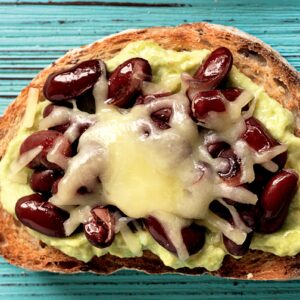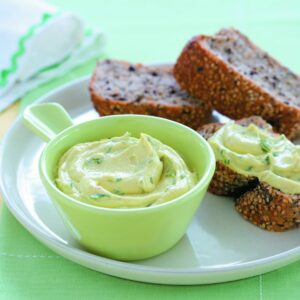
It’s a basic aspect of human nature, and it drives me a little bit crazy on an almost daily basis. I’m talking about our love of quick fixes, simple solutions, and miracle cures.
It’s at its most evident when it comes to weight loss diets. Almost every week there’s another ‘revolutionary’ new diet that comes across my desk. Most of the time there’s nothing new or revolutionary about these, but it doesn’t stop the book from rocketing to the top of bestseller lists and thousands of us from giving them a try.
The thing with any change in eating is that results can often be quick. This is natural if you’re following a restrictive diet. Weight loss, even if it is only water, usually starts happening within days or weeks of starting on a diet, and this is what creates the initial ‘buzz’ and gets people talking about the diet, which then gets more people trying it. What almost never happens is a revisiting of the people who tried the diet in the first place, a year down the track. If we did that, we’d probably find many people for whom the initial weight loss would be followed by a plateau and then a slow (or quick) regaining of the weight. And that’s because faddish diets are rarely able to be sustained long term in real life. As I’ve written before, most have strict rules and ban certain foods or food groups.
Here are some popular diets doing the rounds at the moment.
Fast Diet or IF (intermittent fasting) diet
There are a few variations on this, but basically it entails eating nothing, or a very small amount (500 calories/2000 kilojoules) on two days out of seven. Some versions have you fasting every second day. On the other days you can eat whatever you like. The theory is that when you fast you’re drastically cutting your energy intake, and even when you go back to eating whatever you want, you’re probably not going to make this deficit up, so weight loss ensues.
While there is some research to suggest that eating a very low-calorie diet can extend life expectancy, and there are groups of people (mostly Americans) who have adopted this as a way of life to prove it, I do not think this diet is a very sustainable way to live. For one thing, it teaches dieters absolutely nothing about how to eat in a healthy way. You could do this diet and still eat mainly chips, burgers and pies, so you’d be dieting but getting no nutrition at all. More importantly, to me this encourages a very skewed relationship with food. When we think of food as something to be restricted rather than enjoyed in moderation, we are setting ourselves up for a potentially disordered pattern of eating behaviour which can be really difficult to get out of.
Quitting sugar
We’ve written quite a bit about these diets in Healthy Food Guide recently, as everyone seems to be ‘giving up’ sugar. Some versions of a sugar-free diet have you eating no sugar at all, not even fruit, while others allow some fruit but not all. Some cut out vegetables that have a high sugar content. The theory is that fructose is the baddie here because it is metabolised differently from other types of sugar, and that cutting this out means you’ll lose weight and feel better.
I don’t think you will find any nutrition expert anywhere who says ‘eat more sugar’. The fact is, too much sugar is not a good thing, especially when it comes in the form of sugary drinks and fatty, processed baked goods. Most of us could probably stand to eat less of the added sugar that comes with these foods. Some sugar-free diets encourage eating lots of fresh, whole foods and vegetables, which is great. But others are more focussed on obsessively cutting out this one element from our diet in a very simplistic approach. Again, I don’t think this is sustainable long term, and I don’t think it is necessary, either. By all means cut out soft drinks and sweets – none of us needs these. But if you’re spending your time scrutinising the labels of sauces and avoiding honey on your toast, I’d say it’s time to lighten up.
Paleo diet
This is popular in gym circles and its followers are very enthusiastic. The idea here is that we should eat as our Palaeolithic ancestors did: meat, fish, vegetables, nuts. Grains and dairy are usually banned.
There are some good aspects to this way of eating – lots of fresh food, lots of veges. You’re never going to find a nutritionist who’d advise against eating more vegetables! But most nutritionists are nervous about excluding grains and dairy completely from the diet – these are good foods which supply important nutrients that we all need. And again, the common theme: this is a restrictive diet which is potentially difficult (and expensive) to stick to for most people. I can’t imagine a life without cheese or chocolate myself. Again, I feel this could potentially encourage an unhealthy obsession with sticking to the ‘rules’ and restrictions of the diet. It would be impossible to follow this diet as a vegetarian; you simply wouldn’t get enough nutrients.
Raw food diet
Gaining popularity, this diet sees raw foodies eating nothing heated above 46 degrees. The theory is that cooking leaches enzymes and vitamins from food, diminishing its nutritional value. Raw food diets typically consist of lots of fruit and vegetables, sprouts, sprouted seeds and beans, dried fruit and nuts. Many raw foodists are also vegan, so they don’t eat any meat, dairy or eggs; although some eat raw fish and meat and/or unpasteurised dairy.
There’s no doubt that a diet high in plant foods is healthy. There’s abundant evidence that including more vegetables and fruits in our diets gives us benefits including lowering cancer and heart disease risk and weight loss. The downsides? Again, this is very restrictive (no chocolate or cheese here, either). Unless you are very careful, eating a solely raw diet could leave you short of essential nutrients, including vitamin B12, calcium, iron and omega-3. Most of these are found naturally in animal products. This is also a time-consuming and expensive diet to commit to. Raw food recipes often need lots of time for soaking, sprouting, dehydrating, blending, peeling and chopping and the ingredients often don’t come cheap. It is also worth noting that raw doesn’t always equal lean. Raw sweet treats can be incredibly energy-dense, usually because they’re based on nuts, honey, dried fruit and coconut. They can also cause havoc for people who suffer from IBS, for whom these foods are problematic.
As you can see, there are good and bad aspects to all of these diets. If there’s one thing I’ve learned from eight years of Healthy Food Guide, it is that one solution definitely does not fit all, despite the passionate assertions from the originators of almost all new diets. There’s no doubt some people lose weight and feel better doing these diets, so I’m not going to say “Don’t try them”. Just bear in mind that if it sounds too good (or too simple) to be true, it probably is.
www.healthyfood.com











